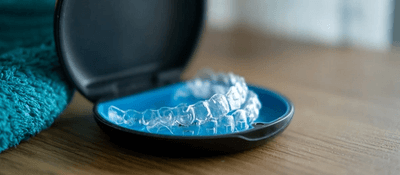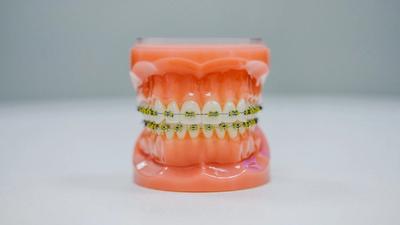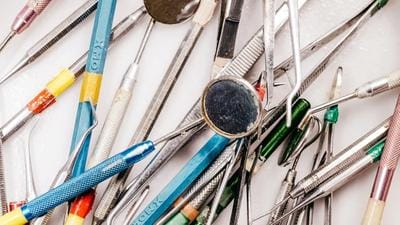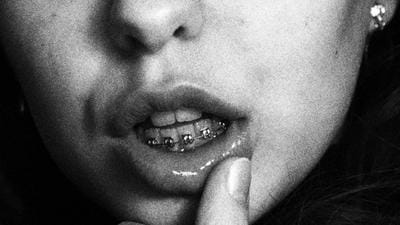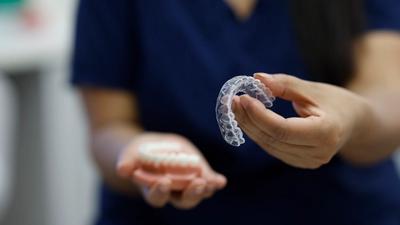Maintaining Oral Health During Orthodontic Treatment

Oral hygiene habits that can shape your smile's future
Maintaining oral health is a paramount concern for individuals undergoing orthodontic treatment. The process of achieving a straighter smile, whether through traditional braces or modern aligners like Invisalign, presents its unique set of challenges. At Windmill Orthodontics, we understand the significance of a healthy smile, not only in terms of aesthetics but also for overall well-being.
In this article, we'll explore the essential steps to ensure that your oral health remains in optimal condition throughout your orthodontic treatment. We'll address daily oral care routines, dietary considerations, and how to handle unforeseen orthodontic emergencies.
The Importance of Oral Health with Orthodontics
Orthodontic treatment, whether through traditional braces or contemporary aligners like Invisalign, introduces unique challenges to maintaining oral health. These orthodontic devices, while necessary for achieving a straight and beautiful smile, can inadvertently create hiding places for food particles and plaque.
Neglecting the care of your teeth and gums during orthodontic treatment can lead to dental issues, potentially extending the duration of your treatment and impacting your overall dental health.
Daily Oral Care Routine
A robust daily oral care routine is the cornerstone of preserving oral health throughout orthodontic treatment. With braces or aligners, a proactive approach to hygiene is paramount.
Maintaining a rigorous daily oral care routine is fundamental to preserving oral health throughout your orthodontic treatment. Whether you have traditional braces or Invisalign aligners, a proactive approach to oral hygiene is key.
- Brushing After Meals: Brush your teeth after each meal to prevent food particles from getting trapped in braces or aligners.
- Orthodontic-Specific Brushes: Consider using brushes designed for orthodontic patients to effectively clean around wires and brackets.
- Flossing: Regular flossing is crucial to remove debris from hard-to-reach areas. Floss threaders or orthodontic floss can facilitate the process.
- Rinsing: Use an antimicrobial or fluoride mouthwash.
- Oral Hygiene Tools: Orthodontic patients may benefit from interdental brushes, water flossers, or proxy brushes to complement their routine.
- Thoroughness and Time: Dedicate sufficient time to your oral care routine, ensuring that you clean all areas thoroughly.
- Frequency: Aim to brush after every meal and floss everyday, but if that's not possible, rinse your mouth and clean your teeth as soon as you can.
Maintaining a regular daily oral care routine, adhering to these practices, will be your best ally in preserving a clean and healthy oral environment throughout your orthodontic journey.
Nutrition and Diet
Your dietary choices play a significant role in maintaining oral health during orthodontic treatment. What you consume can impact not only the success of your orthodontic journey but also your overall dental well-being.
Certain foods can be detrimental to your oral health, particularly when you have braces or aligners. They may get lodged in brackets, wires, or aligners, leading to hygiene issues and potential damage. It's essential to be aware of these foods and consider orthodontic-friendly alternatives.
- Avoid Sugary and Acidic Drinks: Limit the consumption of sugary and acidic beverages like soda, fruit juices, and energy drinks, as they can contribute to tooth decay and enamel erosion.
- Cut Down on Sticky or Hard Foods: Foods like chewing gum, hard candy, and sticky sweets can damage orthodontic appliances and increase the risk of cavities. Avoid these types of foods during treatment.
- Stay Hydrated: Drink plenty of water throughout the day to help flush away food particles and maintain saliva production, which helps protect teeth.
Forming Good Habits for Oral Health
Developing and maintaining good habits is the key to ensuring your oral health stays on the right track throughout your orthodontic treatment. These habit-forming strategies can help establish your daily oral care routine.
- Start Small: Begin by making small changes in your daily oral care routine. For example, if you're not used to flossing regularly, commit to flossing for 1 minute every night. Use a timer to ensure you meet your goal.
- Be Consistent: Consistency is crucial in building habits. Set a specific time aside each day for your oral care routine, and stick to it. Regularity reinforces habit formation. Before bed is typically the best time for flossing or interdental brushes. Make sure you allow yourself the extra time in your routine.
- Set Yourself Up for Success: Use your willpower when you have it - for example, not buying sweets or fizzy drinks when you're in the supermarket will mean none are available when your willpower is weaker later on.
- Make It Obvious: Ensure that your oral care tools, like your toothbrush, toothpaste, and floss, are easily visible - position them so you're forced to see the them before you go to bed at night. This makes it more likely that you'll engage in your routine.
- Use Visual Cues: Consider placing a visual cue, like a sticky note or reminder on your mirror, to prompt you to follow your oral care routine.
- Layer Your Habits: Pair your oral care routine with an existing habit. For instance, commit to completing you oral care routine after your skincare routine, or after an evening shower. This creates a natural link between the activities.
- Get Back on it: If you have a bad day in your efforts, don't use it as an excuse for a longer period of poor habits. Get straight back to your routine at the next opportunity.
- Reward Yourself: A small reward after completing your oral care routine for a number of days can make it more enjoyable and reinforce the habit.
- Accountability and Support: Share your commitment with friends, colleagues, partner or family members. Having people to hold you accountable can be motivating.
Regular Dental Check-ups
Regular dental check-ups are a fundamental aspect of maintaining oral health during orthodontic treatment. These appointments are essential for overseeing the progress of your orthodontic treatment and ensuring that your overall dental health remains in good condition.
Orthodontic check-ups and dental visits are interconnected, and they work in tandem to provide a comprehensive evaluation of your oral health. Orthodontic professionals will focus on the alignment of your teeth and the functioning of your braces or aligners, while dentists will assess your general dental health, including the condition of your teeth and gums. By participating in regular check-ups, you can proactively address any concerns or issues that may arise during your orthodontic treatment.
Tips for Parents of Young Orthodontic Patients
If your child is undergoing orthodontic treatment, you play a vital role in helping them maintain their oral health. Supporting your child during this journey can have a lasting impact on their dental well-being and the success of their orthodontic treatment. Your active involvement will contribute to a positive orthodontic experience for your child and help them achieve a healthy, beautiful smile.
Your Smile, Your Responsibility
The importance of maintaining oral health during orthodontic treatment cannot be overstated. Whether you have chosen traditional braces or opted for the discreet Invisalign aligners, your commitment to oral hygiene plays a pivotal role in achieving a successful outcome.
By adhering to the guidance presented in this guide, you are well-prepared to maintain optimal oral health during your orthodontic treatment. Remember that a healthy smile not only contributes to your overall well-being but also paves the way for a confident and beautiful outcome.
Windmill Orthodontics has 6 practices, which are amongst the most sought after in the North - Newcastle upon Tyne, Gateshead, North Tyneside, Ashington in Northumberland, York and Bedale in North Yorkshire.




